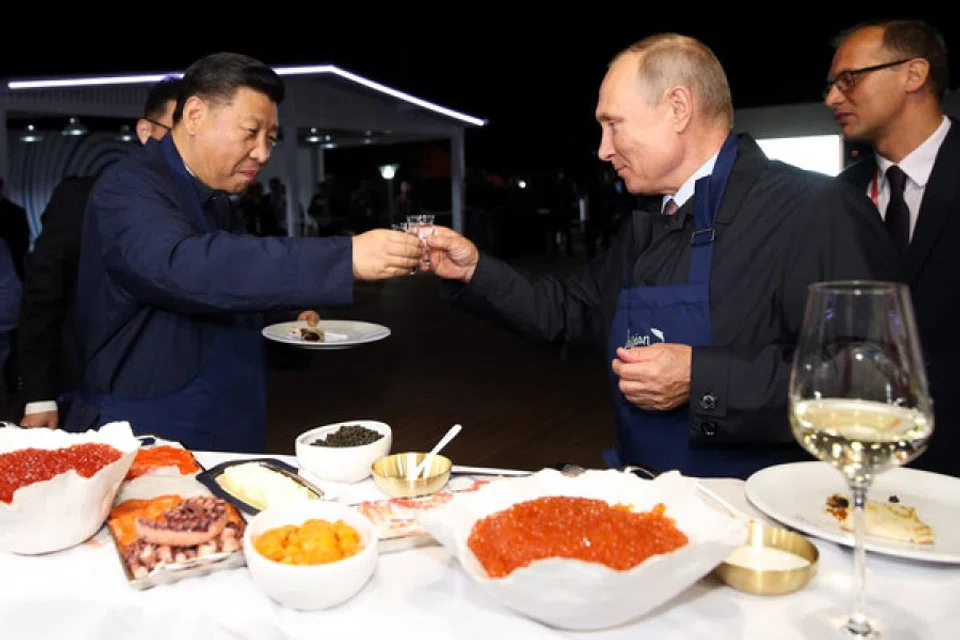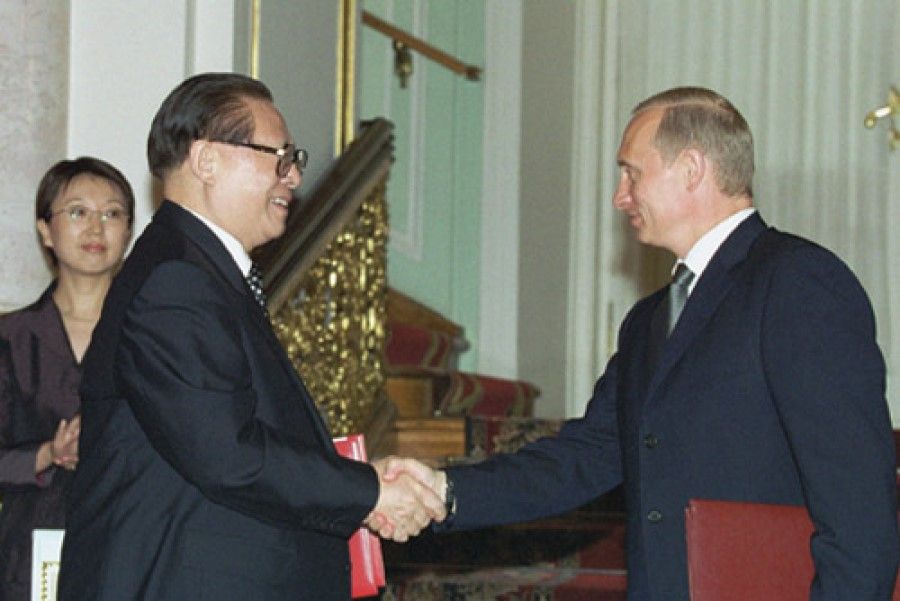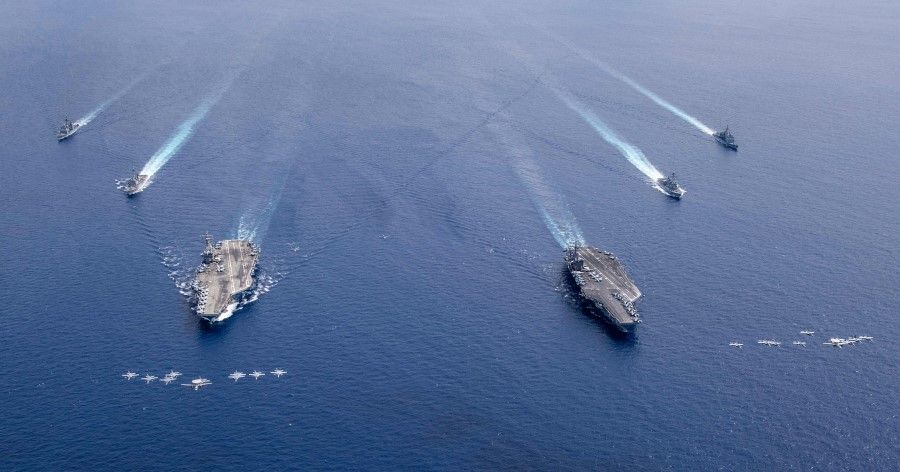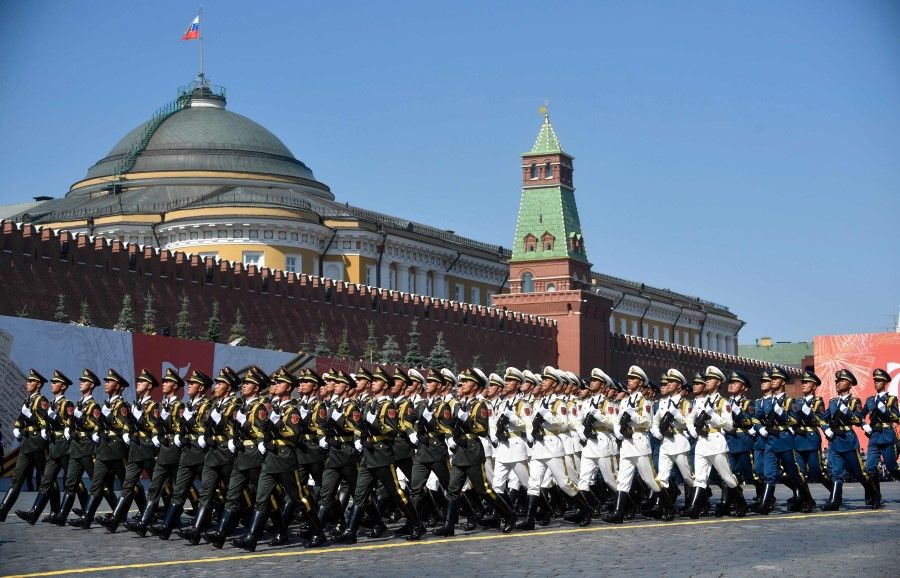Why China and Russia should join forces now

Russia has always faced strategic pressure from the US and NATO, but whether in terms of differences in ideology or military challenges, the current US-China situation is far worse than what Russia has faced.
The general view is that China-US relations will only get worse, even to the possibility of military conflict. Therefore, it is worth thinking about whether China and Russia, as strategic partners, should invoke Article 9 of the 2001 Sino-Russian Treaty of Friendship, which urges "contacts and consultations" to be held when either's peace and security are being threatened.
On 16 July 2001, then Chinese President Jiang Zemin and Russian President Vladimir Putin signed the Treaty of Good-Neighborliness and Friendly Cooperation Between the People's Republic of China and the Russian Federation. The treaty was ratified by the highest legislatures of each country and became the most important legally binding document between both governments. And while the treaty does not necessarily mean that China and Russia are allies, its level and form, especially the common declarations of principles and positions, political stances, and responsibilities and obligations, make it an important document in maintaining political, diplomatic, and security ties, as well as an official declaration of a unique neighbourliness and cooperation between both countries.

At one point, the opinion in the West was that, given the major changes in the international political and strategic situation at the turn of the century, the signing of this treaty laid a legal grounding for the stabilising of bilateral relations amid a complex domestic and external environment, and provided a solid basis for coordinating a common defense against external threats. This treaty is a de facto pact between China and Russia.
Article 9 of the treaty states: "When a situation arises in which one of the contracting parties deems that peace is being threatened and undermined or its security interests are involved or when it is confronted with the threat of aggression, the contracting parties shall immediately hold contacts and consultations in order to eliminate such threats." The article spells out the hypothetical scenarios or situations under which China and Russia should "immediately hold contacts and consultations", and the objective of doing so - that is, to "eliminate such threats".
... for both sides to agree that "peace is being threatened and undermined or its security interests are involved or when it is confronted with the threat of aggression", it cannot be just an observation, but there must be evidence...
The question is, how would both countries decide on those scenarios? Obviously, if both countries do not see things the same way or feel the same urgency in eliminating threats, naturally they would not initiate "contacts and consultations". I feel there are three main points here.
What would warrant China-Russia actions to eliminate threats?
First, for both sides to agree that "peace is being threatened and undermined or its security interests are involved or when it is confronted with the threat of aggression", it cannot be just an observation, but there must be evidence to prove that the threat is real and urgent. For instance, getting hold of intelligence that is mutually acknowledged as reliable; getting reliable information of intentions or actions by a third party to initiate a war of invasion against a party in the treaty; getting evidence of a possible threat of war or signs of imminent war for both parties of the treaty.
Second, even if the intelligence or evidence is insufficient to prove that war is imminent, going by the strategic judgement of the top Chinese and Russian leaders based on the regional and global situation, if they feel that there is a threat of war for one or both sides, that might also constitute a major concern and lead to emergency talks. In fact, the "hotline" between the heads of China and Russia is for such situations.
Third, when military action or intention to invade by a third party becomes frequent and normal, so that the parties to the treaty cannot guarantee preventing an error of judgement leading to military conflict, that would also fit the basic definition of peace being threatened or undermined. From a purely military point of view, when one country maintains long-term intense military pressure on another country, it is difficult for both sides to guarantee that no incidents will be sparked off unintentionally. The situation in the Korean peninsula is a classic example.

In fact, China is facing unprecedented pressure of war from the US, including two US aircraft carrier strike groups recently carrying out exercises in the South China Sea, and one in the East China Sea; US strategic bombers entering the airspace above the South China Sea; and US Navy surveillance planes carrying out frequent close-range surveillance on China's coastal areas. The US has also stepped up its relations with Taiwan and strengthened military ties, which to China would qualify as a threat to peace involving security interests, and a challenge to national sovereignty. Besides, US actions in Taiwan are very likely to spark off military action by China, to defend its territorial interests.
... with the continued threat of war and an increasingly complex international situation, the Chinese and Russian militaries will be more willing to cooperate closely in more areas.
Likely to see greater Chinese-Russian military exercises
I feel that given the current situation, invoking Article 9 is in line with the security interests of China and Russia, and is also in line with the basic responsibilities and spirit of the article. In fact, in a recent interview with Russian media, Chinese ambassador to Russia Zhang Hanhui said both countries are discussing a visit by Russian President Putin to China in autumn this year. Judging from this, it is totally possible that both sides will invoke Article 9 and engage in strategic communication as soon as possible.
I also noticed that Zhang emphasised that China and Russia are ramping up military cooperation. According to media reports, Zhang said that with the continued threat of war and an increasingly complex international situation, the Chinese and Russian militaries will be more willing to cooperate closely in more areas. He added that China is willing to continue ramping up real cooperation with Russia, such as joint exercises, troop training, and anti-terrorism efforts, in order to increase the level of strategic cooperation in major international and regional issues, and deal with the challenges posed by unilateralism, protectionism, and hegemony. Zhang's meaning was clear.

It does need to be pointed out that there is no clause in the article that spells out sending troops to assist either party to the treaty. This is after all not a military clause; besides, both China and Russia deny being allies. And so, I feel that invoking Article 9 and holding a large-scale bilateral military exercise at the appropriate time - or even a nuclear strategic exercise - would send a clear enough signal that both militaries are capable of working together to hit back against any acts of invasion.
The aim of such an exercise is not to participate in war, but to prevent it, and to quell any plans by a third party to initiate war. This would be of real significance for China and Russia as large countries in taking on responsibility for maintaining regional and global peace and stability. Of course, invoking Article 9 does not just depend on the intelligence received by both sides as well as their judgement, but the mutual political and strategic trust between them.
At the moment, the important thing for China and Russia is to have a consensus of strategy and method. Invoking Article 9 would only be the first step.
